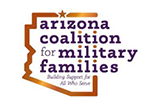
All of us are caregivers in one form or another. We care for children, spouses, partners, parents, siblings, pets, colleagues, friends and our community. It may be because of a personal relationship, our career path or because we volunteer. We do it to help nurture well-being. Caregivers find personal satisfaction in giving of themselves because, in some way, it provides validation, connection, inspiration, and feelings of deep satisfaction, love, and joy.
Caregivers can also feel the pain, anguish, and frustration that those around them feel when they are suffering. There is actually a clinical term for this phenomenon called vicarious traumatization. Vicarious traumatization occurs when a caregiver experiences changes in their own mood, outlook, and even mental health as they engage with and support trauma survivors. It is often part of the condition known as burnout. Hearing painful stories and watching someone react as they relive moments of trauma can trigger vicarious traumatization. Healthcare workers, emergency service providers, and counselors are some professions that are at risk from vicarious trauma. In May, U.S. Surgeon General Vivek Murthy was in Phoenix to address burnout among healthcare workers and promote this as a priority for the U.S. Department of Health and Human Services.
Researchers are now asking if the opposite is true. Can people experience vicarious exhilaration? Can people improve their mood, outlook, and mindset by being nearby someone who is experiencing those positive emotions and living their happiest moments? This is a new area of study with much more to be discovered.
A quick self assessment you can do is to gauge what you spend most of your time thinking about. Is your time spent mostly on the difficult situations that didn’t get resolved or the sometimes tragic stories that stick with you? Or, do you take time to recall the large and small successes you’ve witnessed and the uplifting stories of overcoming tragedy?
It is vital for caregivers (including all of us) to adopt and deploy healthy self-care regimens to recognize, manage, and address the changes that can happen subtly from vicarious trauma over time. Self-care is simply taking care of yourself to ensure that you are well. Self-care is an attitude, a mindset, and an approach to wellness. Just like emotional intelligence is the ability to perceive, control, and evaluate emotions, self-care is a mindset that allows oneself to recognize signs of vicarious trauma (or burnout), take control of one’s wellness, and apply self-care behaviors to counteract the effects of vicarious trauma or burnout. Self-care can include hygiene, healthy eating, avoiding unhealthy behaviors, staying active mentally and physically, and even reaching out for assistance to restore and replenish yourself.
Self Care Tips

Employers, Managers, & Organizations
Encourage and support breaks during a work shift.
Enact paid leave policies and encourage employees to disconnect when on paid leave.
Create a culture that promotes and rewards self-care.
Provide easy access to Employee Assistance Programs such as Be Connected.
Encourage employees to use all paid leave they have earned as a benefit.
Consistently communicate the message that self-care is a way to show dedication to the job, organization, clientele, and colleagues.
Emphasize that self-care is non-negotiable and is an expectation of being a well-rounded employee.

Employees & Colleagues
Support people on their breaks and paid time off and ask the same in return.
Set clear boundaries for disconnecting when on paid time off.
Discuss the importance of self-care with your colleagues, and manager.
Program the Be Connected Support Line (866-429-8387) into your phone to access and share.
Use the paid leave you have earned.
Schedule time on your calendar to engage with people and pets who bring you joy.
Learn to set limits. Say no to things that do not meet your needs.
Emphasize that self-care is non-negotiable and is an expectation for a healthy workplace.

Individuals & Families
Have open discussions about burnout at home, school, and work. Check in with yourself too!
Share ways family members can access mental and physical wellness services and support.
Program the Be Connected Support Line (866-429-8387) into your phone to access and share.
Understand and utilize the mental health and wellness benefits your health insurance plan offers.
Stay in motion! Get some kind of daily exercise.
Identify what activities make you feel your best and take time to do what you enjoy.
Make meal preparation a family or group activity and focus on togetherness.
Combine self-care with things you have to do.
Get enough sleep, water, and exercise.
Emphasize that self-care is non-negotiable and is an expectation for healthy relationships.








